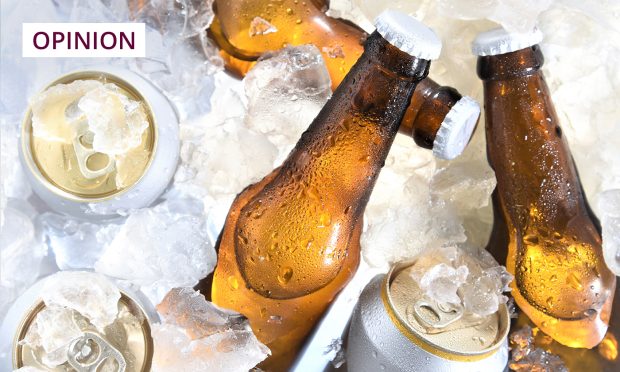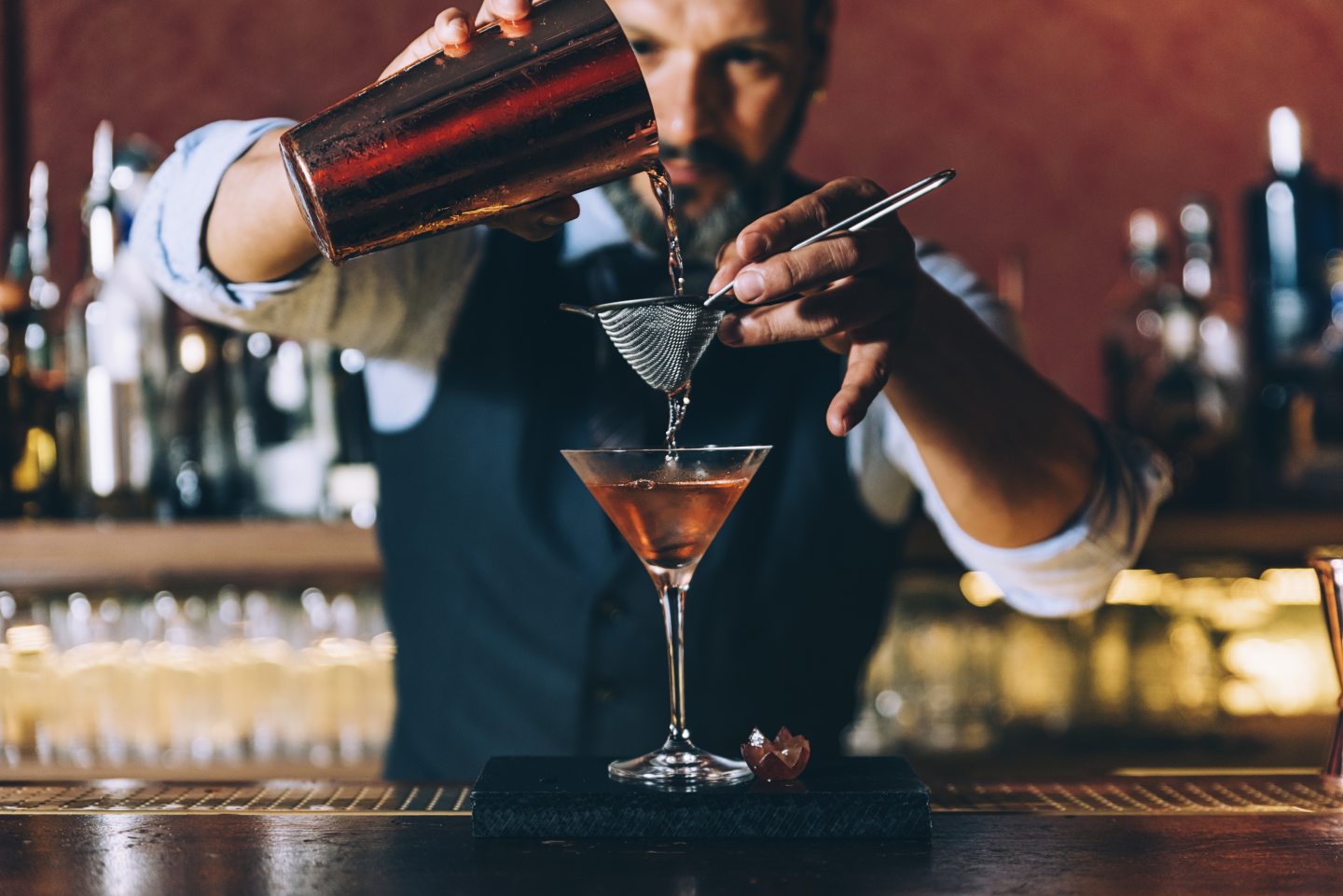By the time you read this, it will have been a year since I had an alcoholic drink. For some of you, that will be unremarkable; for others, unimaginable. Either way, indulge me.
There was no dramatic, pivotal moment that led to my decision to stop drinking for an extended period, after around 15 years of regular and relatively run-of-the-mill boozing, punctuated with a few smug Dry Januarys. But, as I’ve been open about for years, at times drinking has had a seriously negative effect on my mental health, particularly as I’ve grown older.
Last September, after a summer of big, fun nights out and consequent anxiety that ravaged my body and mind, there was no denying that the cons were outweighing the pros on a weekly basis. For the first time, going sober no longer felt impossible. Joyless and frightening, sure, but not impossible.
I downloaded an app to track the days, gritted my teeth and embarked on a few months “aff it” that turned into a few more. And, by that point, you might as well go for the year, right?
Sales of alcohol-free beer are up in the UK – and I know some of that is down to me, but I can’t be solely responsible. Lately, I see more and more articles online about quitting booze and the “sober curious” phenomenon, suggesting at least some of us are becoming increasingly interested in drinking less. And, hey, maybe that strikes a chord with you, too.
Perhaps the most important and, frankly, annoying thing I should be upfront about is that quitting drinking didn’t solve all of my problems or make me a better, more productive person. “But giving up drinking IS doing something,” a wise man who quit booze long before I did said recently. Then, after a pause, he added: “When you take a holiday, you’re still on holiday with yourself.”
Most people ask if I feel physically better than I did before. And, honestly, I can’t say for sure that I do. But I definitely don’t feel worse. I haven’t been hungover for more than a year, and that feels exactly as blissful as it sounds.
For someone who gets Withnail-style hangovers, waking up after a great evening at a club night or dinner party that went on into the wee hours tired but otherwise absolutely physically fine is a special kind of wonderful. Add to that list music festivals, karaoke, a hen do, the office Christmas party and I’ve ticked off a lot of sober firsts in a year.
Clearly, this move changed the way I lived a decent chunk of my life. So, what was I after? And did I get it?
365 days’ worth of hindsight
With 365 days’ worth of hindsight, I think I wanted some time away to think and gain perspective – more breathing space than a Sober October could give me.
“It’s quite helpful and healthy across the board for everybody to take certain breaks from alcohol throughout the year, just to assess their own relationship with the substance,” said Dr Helen Knight, who is a senior lecturer in psychology at the University of Aberdeen, and teaches courses on addiction and addictive behaviours. “If you find it easy, great. If you find it difficult, it might be indicative of something problematic going on under the surface.”
I didn’t struggle to stop drinking so, in theory, I don’t have an issue. But I don’t think I should go back to drinking the way I did before, either.
Like I said, quitting didn’t fix all my problems. I’ve still suffered with anxiety and low mood over the last year, and I can’t blame booze for that. But there’s a link between anxiety and drinking – a punishing cycle that I had no idea I was stuck in.
Stress, anxiety and alcohol don’t mix well
Genetics professor Dr Alasdair Mackenzie was involved with groundbreaking research at the University of Aberdeen, finding a genetic mechanism that regulates alcohol intake and anxiety in many people, thus functionally linking these behaviours. “If you are naturally more anxious, there’s a good possibility that you may drink more alcohol,” he explained.
But, Dr Knight told me, while drinking initially alleviates anxiety, alcohol also reduces the brain’s ability to regulate it. And research suggests that, even stone-cold sober, people who often suffer with anxiety in their everyday lives are already at a biological disadvantage on that front.
I hope I can enjoy a drink occasionally without it knocking my mental health. But, if I can’t, I know I can live without it
Essentially, you feel stressed or anxious, so you drink to relax but end up feeling even more anxious overall, so you drink to relax… “[Drinking is] great in the short term for reducing anxiety, but actually really bad for modulating stress in the long term,” said Dr Knight. You can see how and where I got stuck, can’t you?
I understand now that stress, anxiety and alcohol don’t mix well, and that it’s best to avoid drinking when I already feel overwhelmed. I hope I can enjoy a drink occasionally without it knocking my mental health. But, if I can’t, I know I can live without it.
This column won’t resonate with everyone, but if drinking and its after-effects are taking a toll on you, giving it up for a few months might give you a chance to clear your head. It helped me a lot – it’s actually one of the best decisions I’ve ever made. A year sounds like a long time, but you’d be surprised how fast time flies when you take it one day at a time.
- If you’re worried about your own or someone else’s drinking, you can find online resources here or phone Drinkline on 0800 731 4314
Alex Watson is Head of Comment for The Press and Journal, and an expert on alcohol-free beer

